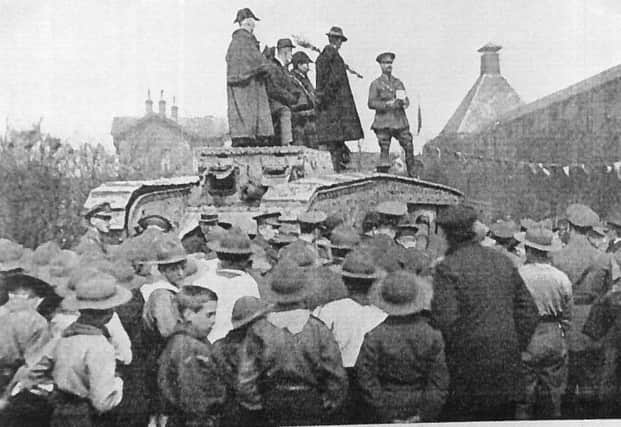The day the bells rang out in Hartlepool to celebrate peace


War was over and Hartlepool, as if in tribute, was blessed with an Indian summer.
The town was already waiting something special to happen on November 11, 1918. They thought it was the arrival of huge guns to stir the people into a fundraising campaign for Feed The Guns Week.
Advertisement
Hide AdAdvertisement
Hide AdThe guns, and the men guarding them, stayed overnight at the High Throston halt.
The officers and men of the 3rd Yorkshire, 4th West Yorkshire and 3rd Battalion of the Cheshire Regiment were due to arrive in the town centre the next day.
By the next morning, they headed into Hartlepool for a different reason. They were coming to celebrate peace. They entered with bands playing, the bells on Christ Church pealing and Church Square festooned with decorations.
But Hartlepool still fundraised in style to support the war effort. People raised more money per head of population than any other part of the UK and were awarded Egbert the tank as a result.
Advertisement
Hide AdAdvertisement
Hide AdBut the die had been cast much earlier than 1918, as far as Hartlepool and its attitude to war was concerned. It was cast the day the Germans left 130 Hartlepool people dead and more than 500 injured in 1914.
Later, in February 1918, the Chancellor of the Exchequer Andrew Bonar Law sent a message to the town saying: “I congratulate the Hartlepools upon having achieved such as splendid record of subscriptions per head of population so early in Tank Week.”
Coun M Thompson gave a speech the same day.
He said the town was so passionate about fundraising because the Imperial German Navy subjected Hartlepool to a bombardment on December 16, 1914 – the first time that British civilians had been directly involved in conflict.
Coun Thompson, whose speech is extracted from the Northern Daily Mail, said: “We did not believe in singing Keep The Home Fires Burning Til The Boys Come Home without doing something to get fuel to the coalhouse.
Advertisement
Hide AdAdvertisement
Hide Ad“Furthermore, we in the Hartlepools had something to wipe off the slate. We were not likely to forget December 1914 in a hurry.
“And the best way to defeat the Kaiser and his hordes of savages was not for those at home to knock nails into a wooden image, but to put every possible penny into the Tank.”
No wonder then, that the town celebrated when it was all over.